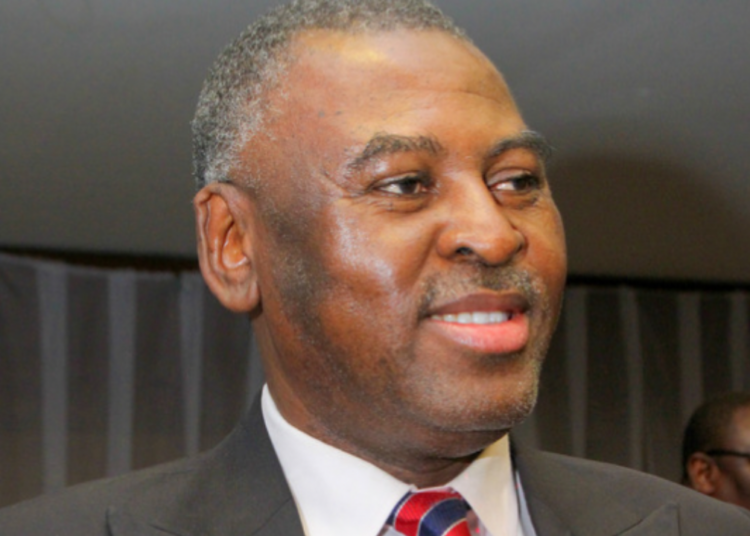What are the potential economic benefits for African countries and indeed Nigeria that successfully achieve a balance between energy accessibility, affordability, and sustainability?
Currently, Africa faces energy poverty, with inadequate energy supply and affordability. However, achieving this balance can revamp the economies of African countries and lead to improvement in economic indicators.
Firstly, reliable and affordable energy can spur industrial growth and productivity, promoting economic diversification. It can stimulate the growth of small and medium-sized enterprises, which are key drivers of job creation and economic development.
Secondly, investing in sustainable energy infrastructure can create jobs both in the short term, through construction and installation activities, and in the long term, through operations and maintenance roles.
Expanding energy access can have positive socio-economic ripple effects, including improved healthcare and education services, thereby fostering human capital development.
Finally, a sustainable energy sector can attract foreign direct investment, stimulate technological innovation, and open new avenues for international trade and cooperation, further bolstering economic growth and prosperity.
How can renewable energy sources, such as solar and wind power, be harnessed to enhance energy accessibility, affordability?
While hydrocarbons will continue to dominate the global energy mix in the foreseeable future, advancements in solar and wind power technologies are expected to increase their footprint in the African energy mix, promoting energy accessibility, affordability, and sustainability.
Are there any specific policy or regulatory changes that you believe would be beneficial in promoting balance?
Every region is unique, and adopting an adaptive and scalable framework for their energy roadmaps is crucial. This will enable African countries to adjust to changes in technology, global trends, and socio-economic dynamics.
How can African countries leverage international partnerships in all of these?
Africa still needs fossil fuels for its survival in the foreseeable future, even as international funding of fossil fuel projects has faced setbacks. While securing funding for renewable energy sources is important, it may not suffice to meet the energy demand in Africa. Therefore, Africa should engage in bilateral talks with donors, explaining its position and aiming for mutual understanding to sustain funding while advancing renewable energy penetration.
What role can SPE Nigeria play in achieving a balance between energy and the balance?
This question aligns with SPE‘s core vision, which is to advance the oil and gas community‘s ability to meet the world‘s energy needs in a safe, environmentally responsible, and sustainable manner. SPE Nigeria is already contributing to this cause through its advocacies and events.
The Nigeria Annual International Conference and Exhibition (NAICE) 2023 is approaching. What have been the main achievements of the past editions?
The Nigerian Annual International Conference and Exhibition (NAICE) has achieved significant milestones over the years. Serving as a knowledge hub, NAICE has facilitated the exchange of best practices and insights among industry professionals, fostering a deeper understanding of petroleum engineering trends and challenges.
Importantly, it has catalysed strong networks, providing a platform for dialogues and partnerships among industry leaders, government representatives, and academics. This has led to innovative solutions and policy shifts propelling our industry forward.
A key achievement of NAICE has been its role in promoting local content development. By showcasing the immense potential of Nigeria‘s oil and gas sector to the global community, NAICE has attracted foreign investment and portrayed a positive image of Nigeria‘s vibrant energy sector.
Finally, NAICE‘s contributions to capacity building cannot be overstated. With workshops and technical sessions, professionals have improved their skills and stayed abreast of industry developments. We look forward to building on these successes in the 2023 edition.
The theme of this year‘s NAICE is „Balancing Energy Accessibility, Affordability, and Sustainability: Strategic Options for Africa.“ How would you define the concept of balancing energy accessibility, affordability, and sustainability in the context of Africa?
Balancing energy accessibility, affordability, and sustainability in Africa‘s context refers to a nuanced approach to energy provision and consumption. Energy accessibility means ensuring all individuals and organisations can access reliable, modern energy, irrespective of their location or socio-economic status, a critical issue in Africa where many still lack reliable energy sources.
Energy affordability entails ensuring energy and its infrastructure are priced so they can be obtained without financial strain. It‘s crucial in Africa to foster economic growth without exacerbating economic disparities.
Energy sustainability implies that our energy use does not harm the environment or exhaust resources, affecting future generations. It necessitates attention to factors like greenhouse gas emissions and resource conservation.
The balance between these aspects requires technological innovation, effective market mechanisms, well-crafted policy interventions, and capacity building. Through NAICE 2023, we aim to delve deeper into these issues, identifying strategic, feasible solutions for Africa‘s energy balance.
What are some of the key challenges that Africa faces in achieving a balance between energy accessibility, affordability, and sustainability?
Africa faces several key challenges in striking a balance between energy accessibility, affordability, and sustainability. One major issue is inadequate infrastructure. Many areas lack the necessary infrastructure for energy distribution, which hinders accessibility.
Affordability is another challenge. While energy is a basic need, many Africans struggle to afford it due to poverty and income inequality.
Additionally, the high cost of setting up renewable energy technologies can be prohibitive for many households and communities.
Sustainability is a further challenge due to dependency on fossil fuels and biomass for energy, leading to environmental degradation and health issues. Transitioning to cleaner, renewable energy sources is vital, but requires significant investment.
Lastly, policy and regulatory challenges exist. There‘s a need for policies that incentivize sustainable energy development, affordability, and accessibility, but policy implementation is often hampered by institutional weaknesses and lack of capacity. These challenges, among others, need to be addressed to achieve a sustainable energy balance in Africa.
Can you provide examples of successful strategies or initiatives that have effectively addressed the issue of energy accessibility, affordability, and sustainability in Africa?
One such example is the framework of the Nigeria Petroleum Industry Act (PIA). Although it is still in its early stages, the PIA holds high stakes and expectations in addressing energy challenges in Nigeria.
Also in Nigeria, the Nigerian National Petroleum Corporation Ltd’s (NNPC) Gas Infrastructure Development initiative and the “Decade of Gas” initiative are good examples that aim to harness Nigeria‘s abundant natural gas reserves to improve energy accessibility and affordability, while also reducing environmental impact by curbing gas flaring.
Another success story comes from Angola, where the government, in collaboration with international partners, has invested heavily in offshore oil exploration. This initiative has increased oil reserves, creating jobs and contributing to economic growth, while also maintaining strict environmental standards.
How can governments, international organisations, and the private sector collaborate to promote energy accessibility, affordability, and sustainability in Africa?
Collaboration is a core value of SPE, and we are always ready to engage with governments, international organisations, and the private sector. Our mission is to connect a global community of energy professionals and exchange knowledge to achieve a safe, secure, and sustainable energy future.
Collaboration could take many forms, from public-private partnerships for infrastructure development, and joint research and development initiatives, to policy dialogues and capacity-building programmes. A multi-stakeholder approach can ensure that energy strategies are inclusive, economically viable, and environmentally sustainable.
How prepared is SPE Nigeria towards the coming NAICE 2023? What will the main features be?
SPE Nigeria has made significant preparations for NAICE 2023. Over the past 10 months, we have held more than 12 general planning meetings and countless visual cluster meetings to ensure the event‘s success. Leveraging the experiences of our sub-committee chairs, I am very confident that NAICE 2023 will be a resounding success.
One of the main features of NAICE 2023 will be the wide range of technical sessions and panel discussions facilitated by leading experts and policymakers in the industry. These sessions will delve into a variety of topics such as sustainable practices, energy advancements, the role of digital technology in energy, and the economic and policy aspects of energy development in Africa.
We will also have an extensive exhibition showcasing cutting-edge technologies, services, and solutions in the oil and gas industry. This will provide a platform for individuals and businesses to network, collaborate, and identify new opportunities. Another significant feature will be the workshops and training sessions designed to enhance the skills and knowledge of participants. We believe that these sessions will be of great benefit to professionals and students alike, and we look forward to welcoming everyone to what promises to be a very enriching event.











